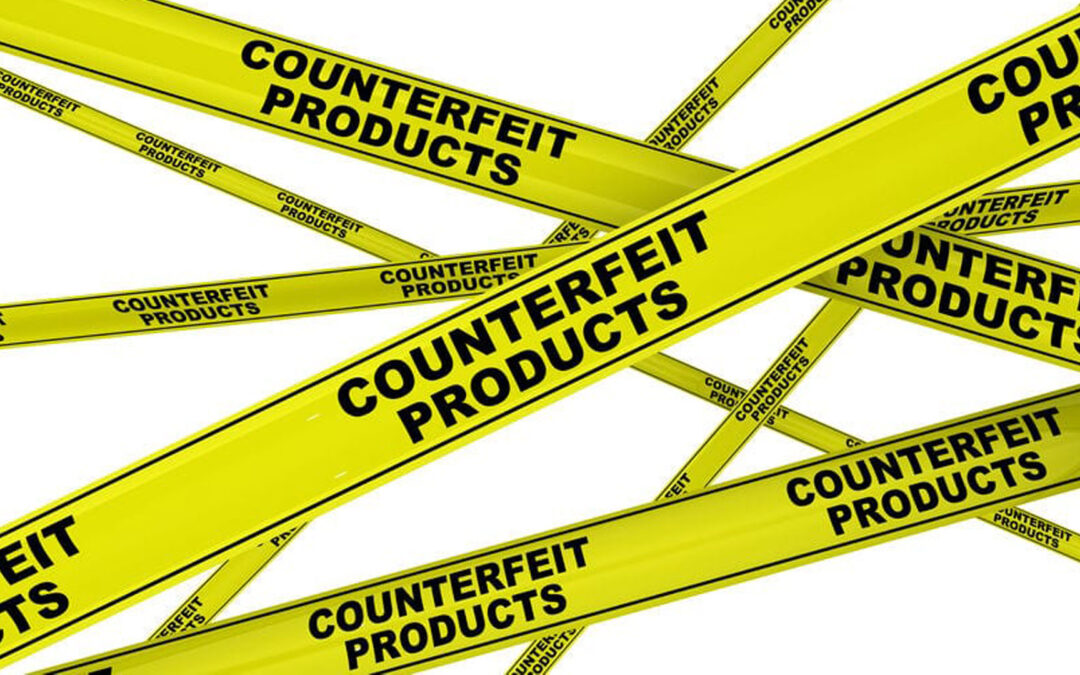Trademark is Key to a Successful Takedown of Counterfeits
Counterfeiting was already a billion-dollar industry with the internet being a major enabler of its global growth. The rate of digital transformation is unstoppable, and COVID-19 has forced shoppers to rely more heavily on e-commerce. Brand protection has been an ongoing challenge for businesses, but with the pandemic, increased online shopping, an expanding marketplace, and the explosion of social media channels, counterfeiting has become an epidemic. According to World Trademark Review, one in every four online purchases involves pirated goods, leaving no industry untouchable.
Dorothy skipped along the yellow brick road in one-of-a-kind, ruby red glass slippers. In today’s world, if Dorothy had started a business to capitalize on those infamous shoes, rest assured those slippers would be copied and sold through online marketplaces, with consumers not realizing they are knock-offs. Feeding into the consumer appetite, fraudsters are compromising brand reputations.
A trademark is the best way to defend your brand against counterfeit goods. What may seem expensive and unnecessary at first, the trademark protects a significant portion of your income that can be compromised by counterfeiters and your clients from serious harm. This year has seen an outbreak of counterfeit products, and analysis for the New York Times in February found the sale of counterfeit items represents more than three percent of global trade, corresponding to $1.4 billion in value in the U.S. alone.
Your business name, the names of your key products and services, your logos, packaging and slogans all function as trademarks that distinguish your company. With the mass shift to the web and online services, businesses are also relying more heavily on their domain names to be a safe destination for their customers. A domain name is a valuable article of your Intellectual Property, however, domain name fraud is another deception that is increasing with intensity. Over the past decade, instances of fraud linked to domain names have become a growing problem for businesses and are an increasing threat. Fraudsters register domain names that are similar to or incorporates the names of known companies to defraud unsuspecting customers of their money or data.
Over the past few years, there has been a steady increase in the number of domain name complaints. In 2019, a record number of 3,693 complaints were filed at the World Intellectual Property Organization, and 2020 WIPO statistics show that 3,405 complaints were filed between January and October 2020. This is an 11% increase over the same period in 2019. The most aggressive domain squatters have been known to purchase domains that are well-known names or trademarked and build a site to capitalize on the traffic generated by people who search for that well-known name.
These sites are abundant and the owners are often untraceable, operating through false identities. Many e-commerce platforms have a process for removing counterfeit goods from their websites upon receipt of a complaint, but this is often only a temporary remedy. Typically, the same counterfeiter will simply show up again on the e-commerce platform using a different alias. This has legitimate trademark owners in a never-ending cycle of takedown requests to get the counterfeit goods off the market.
Dorothy did not travel the yellow brick road alone. She had a team, each with specific talents necessary to get her to her destination — the wizard. Instead of experiencing lost revenue from copycats and diminished brand loyalty, contact the legal team of Ference and Associates to help you register your trademark, fight infringement and protect your brand. They’ve traveled this road many times with their clients and have the knowledge, resolution, and spirit to protect your IP. Call +1 412 741 8400 or visit https://www.ferencelaw.com/contact-us/

